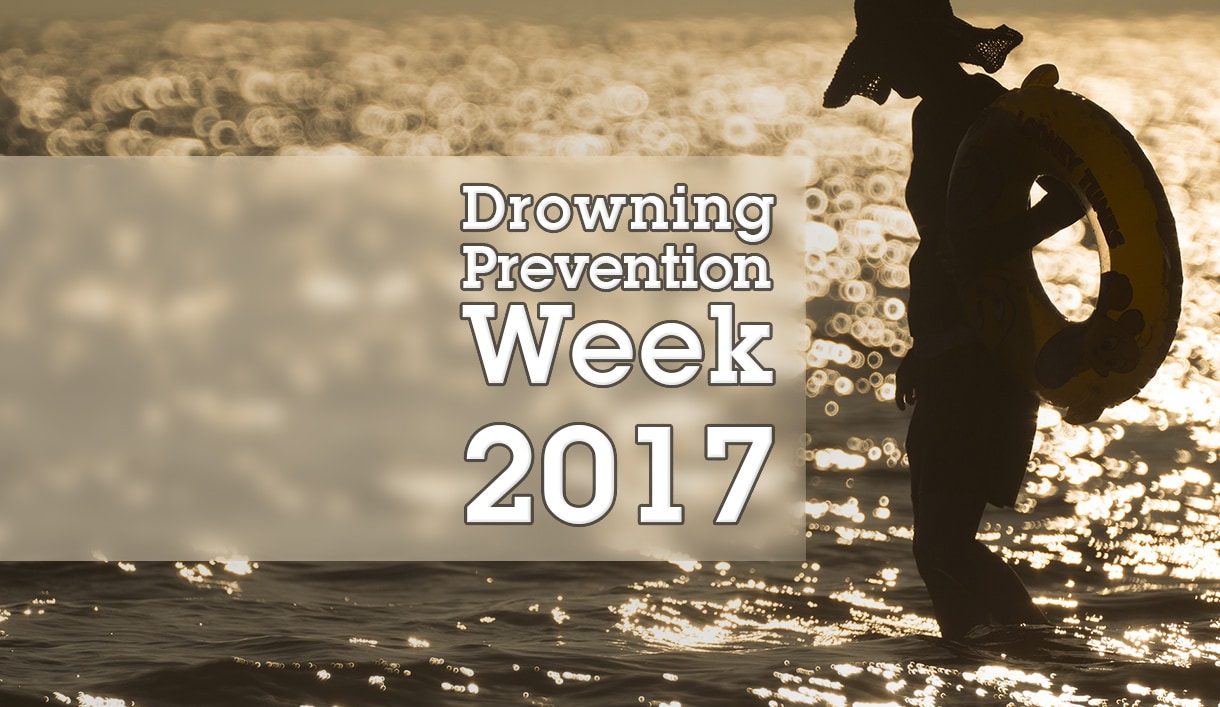Drowning Prevention Week 2017
Tips on Water Safety when Swimming
With no small array of Health and Safety concerns on dry land many of us might be forgiven for overlooking water safety advice.
On the other hand, almost all of us will end up crossing or entering a large body of water on at least an occasional basis, whether it be for a boat trip or beach holiday. In this respect, the irregularity may actually make water more dangerous as our lack of familiarity with it can lead to a lack of risk awareness.
Today marks the start of Drowning Prevention Week 2017, a national campaign established by the Royal Life Saving Society UK.
As their website’s UK statistic of ‘one person drowning every 20 hours’* illustrates, drowning and injuries from near drowning experiences are a very real risk, certainly as worthy of attention as any other Health and Safety issue.
In support of this SHEilds has gathered some general pointers and tips on water safety in various scenarios to help encourage greater awareness.
Water Safety on Holidays and Beaches
For many who live and work in the city holidays represent a refreshing opportunity to visit the sea and indulge in some swimming. Unfortunately, UK citizens drowning at beaches and abroad is not uncommon potentially turning a vacation into a nightmare.
To help protect you and your family here are some tips for water safety on holidays and beaches:
- Read the signs, know the risks – Beaches with active lifeguards and hazards clearly marked with flags are likely to be the safest. Pay close attention to warning signs and if you’re not sure what the flags mean make an effort to find out.
- Make sure everyone can swim – Even if you can swim and are a little out of practice it may be worth having a refresher before your holiday at the local swimming pool before doing so in potentially unpredictable waters. In the case of younger children, it’s similarly advisable to ensure they can swim at least a little and are clearly aware of the dangers water can present.
- Keep a swimming partner with you – swimming alone – especially in the sea – could be extremely dangerous if you find yourself in trouble for whatever reason. A swimming partner means another person is available to offer help in an emergency or raise the alarm.
- Don’t mix alcohol with swimming – With holiday relaxation being on the agenda drinks will be likely for many. However, increased lack of inhibition and delayed reactions are a poor combination with water, putting you at unnecessary risk.
- Mind your diving – If you’re taking a dive into water make sure that the water below is clear and deep enough to accommodate. If rocks, piers and people are in the way you could be facing a nasty accident.
- Watch the tides – Take note of beach tides when you arrive or ask a local for more information. If they are going out be sure to maintain a footing at a depth where you can easily walk out, especially if you aren’t a strong swimmer. Also bear in mind that isolated bays can become death-traps if water rises rapidly and you are cut off – take note of safe exits and keep track of the tide schedule to keep safe.
- Watch children, beware inflatables – Statistically water-based accidents involving young children occur most often during initial arrival on a beach while parents are setting up. Make sure you know where yours are at all times and do not allow them to approach large bodies of water unsupervised. Additionally, keep in mind that while inflatable lilos and dinghies can be a lot of fun they are frequently blown out to sea; stay safe by only using them in more confined spaces such as rock pools.

Lay the ground work for your new HSE career in 2017! Check out what the General Certificate can offer you.
Staying Safe on and Around Open Water
The RLSS reports that 85% of accidental drownings take place on open water sites including rivers, lakes, canals and reservoirs.*2 Many of these can appear deceptively calm and still but this doesn’t rule out danger with ignorance being a key factor in serious mishaps.
Here are some key points to keep in mind for staying safe on and around open water:
- Don’t miss the signs – As with beaches warning and guidance signs exist for a reason. If a significant danger is signified it is done so with good cause. Ignoring them ignores duly noted risk and immediately puts you in peril.
- Don’t ‘go with the flow’ – Floating freely in currents may quickly escalate beyond your control while fast flowing waters shouldn’t be entered at all. Make sure you are in control, not at the mercy of the waters flow.
- Follow the shore – Staying parallel to the shore when you go for a long swim will result in a more predictable experience, while swimming away from shore could land you in deep waters rife with unknown hazards.
- Mind your temperature – If you start to feel cold it’s time to get out of the water. Furthermore remember that deeper waters will be colder increasing loss of body heat.
- Mind what’s beneath – Whether it’s a rock, trapped driftwood or debris be aware that underwater hazards can be disastrous under the wrong circumstances. If the waters aren’t clear enough to see directly then swim cautiously.
- Even if you’re not swimming – be sure to wear some kind of life jacket or floatation aid. Whether it’s boating or fishing being prepared for the unexpected covers all your bases and reduces the possibility of the worst case scenario.
Swimming Pools
Finally, it’s worth highlighting that many of the points covered under the last two headings can also be applied to swimming pools.
The controlled environment of public or private pool may give the impression of complete safety but this isn’t to say there are no risks, especially where young children are involved. To reduce the possibility of slips, trips and falls avoid running around them on slippery surfaces and if you are planning to dive ensure it’s in a pool deep enough to accommodate it.
Stay Informed, Stay Aware, Stay Safe
Wherever you encounter, cross or swim in a body of water respecting the dangers is always important. When going abroad consider researching your swimming spots in advance and as covered make sure children are well educated on the risks.
Stay informed, stay aware, stay safe and have fun!
Owen Roach
*https://www.rlss.org.uk/water-safety/drowning-prevention-week/
*https://www.rlss.org.uk/water-safety/water-safety/water-safety-in-open-water/








Leave a Reply
Want to join the discussion?Feel free to contribute!